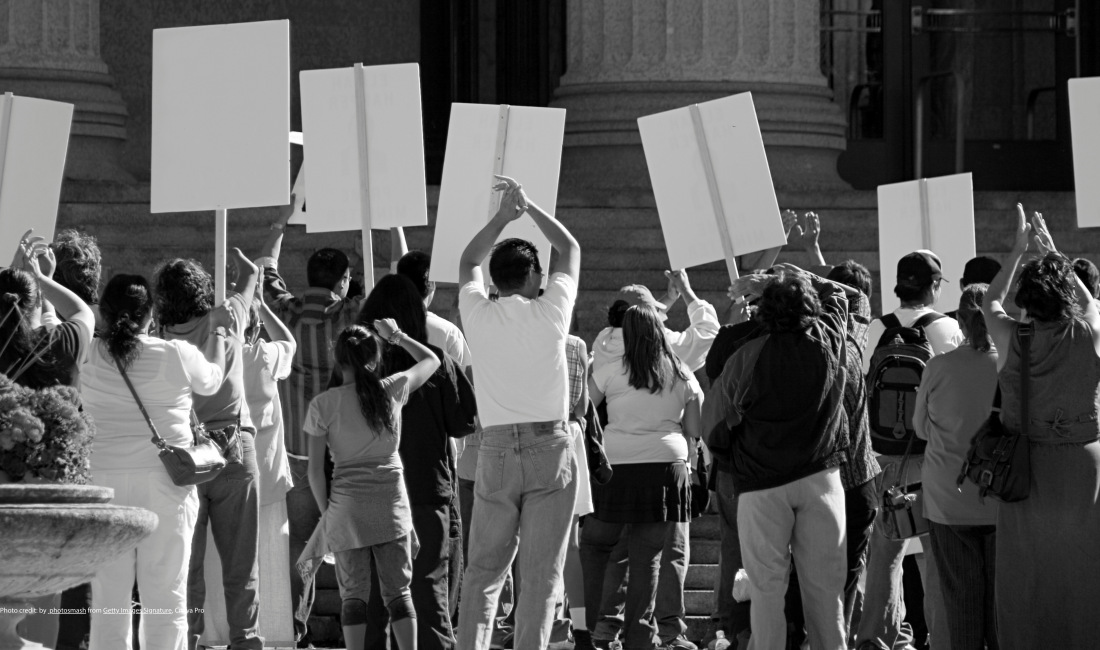2024 was no ordinary year. It was the year when over a billion people worldwide showed up to make their voices count. Across the globe, ballots were cast, leaders were chosen, and the collective strength of democracy shone bright – though not without its shadows. Bangladesh's year began with parliamentary elections in January 2024, marred by reports of voter suppression.
By Frida Palmen.
Red flags were already waving among the country’s political elites, signalling cracks in the system. By summer, those red flags weren’t just symbolic; they became the colour of blood on the streets. Triggered by the government’s reconstruction of quota reforms, students flooded the streets in opposition and refused to back down. The country now finds itself under a new interim government, but the question remains: how will this new leadership address the nation’s wounds?
What does the quota system reform have to do with this escalation?
The student protests in Bangladesh in 2024 were closely tied to its contentious quota system, a source of division for decades. Established in 1972 to reserve 30% of government jobs for the children of Independence war veterans, the quota was meant to honour those who fought in the 1971 Liberation War. Over time, however, it became widely criticised for fostering political favouritism and limiting opportunities for the broader population. Despite the government's abolition of the quota in 2018 following large student protests, it was reinstated by the High Court in June 2024, sparking fresh waves of student-led demonstrations. This revival of the quota system occurred against the backdrop of a broader political crisis fueled by years of institutional decay under Sheikh Hasina’s regime. State bodies like the Judiciary and Election Commission had been increasingly politicised, eroding democratic processes and worsening public discontent.
On July 15, 2024, students from Dhaka University peacefully protested the new quota reform, but the response they got from the government was the opposite of peaceful - it was pure violence. Between July 1 and August 5, 2024, the government committed widespread human rights violations, with official reports tallying 1,581 fatalities, though the actual number was likely higher due to numerous undocumented deaths. The protests quickly spread across the country and beyond its borders, accompanied by brutal government crackdowns.
What followed was a powerful testament to the resilience of Bangladesh’s citizens. The initial student protests grew into a broader movement, uniting citizens across the nation in defiance of police and military violence. Abu Sayeed, a student from Begum Rokeya University in Rangpur, became one of the first victims of this crackdown on July 16, 2024. The government’s actions against the protesters were appalling, ranging from drone surveillance to raids on hospitals and even cutting off internet access. Despite facing violence and death, the people of Bangladesh refused to back down. The protests only grew louder and more determined. By August 5, 2024, the pressure on Sheikh Hasina’s government had become too much. She fled, leaving the country without leadership for three days until August 8, when an interim government led by Nobel laureate Dr. Muhammad Yunus took office.
For a more detailed outlook on the student protests in Bangladesh and their aftermath, read the Human Rights Organisations Odhikar Report: ‘Thirdly Quarterly Human Rights Report, July-September 2024’.
What happened next?
While the transition to an interim government brought a glimmer of hope, the situation in Bangladesh remains unstable. The violence didn’t disappear overnight, and the influence of the Awami League, even without Hasina in the lead, continued to loom large. Awami League affiliates and their supporters remain active, and attacks on political opponents, journalists, and activists persist. The Cyber Security Act, which many had hoped would be diminished, still allows the government to control and censor information, stifling free speech. Furthermore, the Digital Security Act, which the government had repealed in September 2023, was reinstated in November 2024, continuing to target journalists and activists.
Despite these ongoing challenges, the emergence of the interim government led by Dr Yunus represents a potential turning point for Bangladesh. The promise of reform, however, has so far been unfulfilled. The institutional mechanisms of control remain intact, and the system that allowed for the abuse of power is still in place. While the interim leadership has made some efforts to address the demands of the protests, such as appointing student leaders to advisory positions and releasing detained protesters, it has yet to demonstrate the kind of sweeping change that many citizens had hoped for.
We should never pay for our freedom.
The events of Bangladesh’s summer months provide a powerful lesson in the fragility of democracy. Though seemingly light and safe, the power we hold as citizens can quickly be taken away when the wrong person gains control. Institutions meant to protect us can be manipulated, and the balance of power can shift in the blink of an eye.
Bangladesh’s strong and determined citizenry, however, offers hope. Despite the challenges, the protests' persistence and demands for accountability and electoral reform reflect a collective desire for change. The transformative months following the protests have opened an opportunity for political elites to engage with the public. Yet, citizens remain excluded from power as the Awami League's control remains over key institutions such as the judiciary; operating with political bias - and the media; curbing press freedom with the Digital Security Act back in place.
Sources:
- Amnesty, https://www.amnesty.org/en/latest/news/2024/08/bangladesh-interim-government-must-restore-freedom-of-expression-in-bangladesh-and-repeal-cyber-security-act/
- Amnesty, https://www.amnesty.org/en/latest/news/2024/07/what-is-happening-at-the-quota-reform-protests-in-bangladesh/?utm_source=chatgpt.com
- Human Rights Organisations Odhikar Report, ‘Thirdly Quarterly Human Rights Report, July-September 2024’, https://www.icnl.org/wp-content/uploads/HRR_July-September_2024_English.pdf



